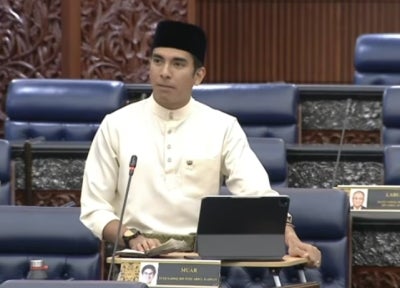Announcement on TH dividends slightly delayed this year, Senate told
04 Apr 2023 03:41pm

Minister in the Prime Minister's Department (Religious Affairs) Datuk Dr Mohd Na'im Mokhtar says the reason being that the distribution of the dividend could only be made after an audit is conducted.
Minister in the Prime Minister's Department (Religious Affairs) Datuk Dr Mohd Na'im Mokhtar said the reason being that the distribution of the dividend could only be made after an audit is conducted.
"It will be slightly delayed because the report from the Royal Commission of Inquiry (RCI) requires TH to announce the distribution of dividends only after the audit is done.
"So it will take some time to announce the date for distribution of dividends,” he said when winding up the debate on the Supply Bill 2023 (Budget 2023) at the Dewan Negara.
He was responding to an intervention by Senator Mohd Apandi Mohamad on the matter.
Last year, the matter was announced on Feb 24.
Meanwhile, Mohd Na'im said the government is committed and optimistic about producing quality huffaz (memoriser of the Quran) by devising various strategies in line with the National Tahfiz Education Policy (DPTN) which was launched in 2018.
He said that based on the data from Darul Quran, Department of Islamic Development Malaysia (Jakim), a total of 10,675 huffaz were produced as of February this year, with 2,102 of them professional huffaz from eight institutions of higher learning.
"The government has also developed a DPTN action plan that contains 20 strategies and 32 initiatives that are guided by five cores, including strengthening the law and enforcement; creating a tahfiz institution model as well as creating a tahfiz education curriculum that is compatible with mainstream education," he added. -Bernama
Download Sinar Daily application.Click Here!














